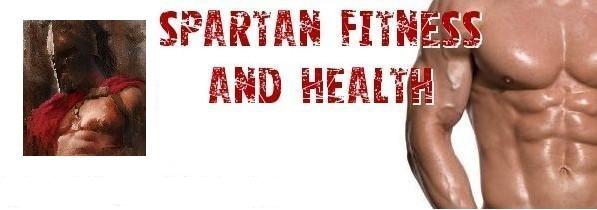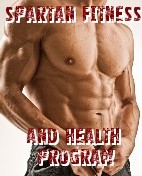
Click Here For Free Spartan Health and Fitness Magazine
Healthy Foods vs Unhealthy Foods

Spartan Health
and Fitness Program
What foods are healthy and which are not.
More than 50% of deaths in North America (especially men) are caused by cardiovascular disease, mostly related to unhealthy eating habits? But this problem is not limited to men only as the population and the seemingly run away increase of diabetes and high blood pressure is just getting worse every year.
Research show that eating correctly and having home cooked fresh foods takes time and effort and often junk foods can be purchased for the same price and less hassle. Eating junk foods is not only going to make you obese but it will certainly make a huge difference on your longevity and general health. The ONLY answer is to eat correctly.
Below is a short list describing the unhealthiest foods that you can eat to speed up this process. But before we mention the unhealthy foods it should be mentioned which are the top ten foods that you should eat.
1. Sweet potatoes. They're loaded with carotenoids, vitamin C, potassium, and fiber.
2. 100% whole grain bread contains many more vitamins and minerals than its white counterpart.
3. Broccoli comes packed with vitamin C, carotenoids and folic acid.
4. Watermelon makes an excellent source of vitamin C and carotenoids.
5. Beans win the inexpensive, low fat, high protein award. Plus they contain lots of iron, folic acid and fiber.
6. Cantaloupe supplies all the daily requirements of vitamin A and C in just a quarter slice.
7. Spinach and kale provide calcium, fiber, carotenoids, and vitamin C.
8. Oranges contain vitamin C, plus abundant folic acid, potassium and fiber.
9. Oatmeal provides soluble fiber that helps lower bad cholesterol while improving good cholesterol.
10. 1% milk ranks as an excellent source of protein, with little or no artery-clogging fat or cholesterol.
The unhealthiest foods that you can eat are solid fats which come from any land animals or coconut and palm oils. You should take care to reduce your intake because they're safe for frying and slow to spoil. They're a quick and easy way to add taste and calories. These oils compete with the "good" oils for the nutrients, which slows down some of the essential cell functions. In order to absorb these fats, we must increase the production of cholesterol. That means that to have them in our blood, we also make additional cholesterol.
The second is all heated, deep fried fats and oils that may taste good but aren't naturally found in food and they interfere with certain essential oils. This means they will raise your bad cholesterol and it should be kept in mind that nearly all store-bought baked goods are made with shortening. Contrary to popular belief, butter is better than margarine.
The third unhealthy foods are any white refined flour and most store-bought pasta and the reason is that the bran and germ that are removed from such items are amazingly good sources of minerals and vitamins. They lack the essential nutrients, even after enrichment. It is therefore better to stick with whole grain products because white refined flour and store-bought pasta are linked to an increase in heart disease.
The fourth point is to try to completely avoid eating white rice. The reason is that brown rice has nutrients that can't be found in white rice. One can possibly mix white and brown rice together for a great combination of flavor. The final point that needs to be mentioned in this article on unhealthy foods is sugar.
You should try to avoid all sugar both white and brown, as well as molasses and soft drinks. Even though most of us are used to grabbing a Coke from the vending machine at work or school most of us are completely unaware of the fact that the fructose portion of refined sugar is a building block for cholesterol.
For more information checkout the Spartan Fitness and Health Program
Click Here For Free Spartan Health and Fitness Magazine
This publication is presented for information purposes, to increase the public knowledge of health and fitness.
The information presented is not intended for the treatment or prevention of disease, nor a substitute for medical treatment, nor as an alternative to medical advice.
Any of this advice should not be adopted without a consultation with your health professional.